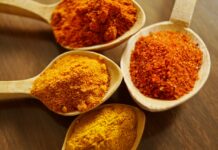Eating at night, is it good or bad? If good, then what? In addition, if bad, how much? Is it okay to eat at night? Nutritionists disagree on this issue. It would seem, but what is so difficult? Let us try to delve into the very essence of the question and find, finally, the only correct answer.
Most nutritionists firmly believe in the postulate: “You should have breakfast like a king, dine like a queen, and dine like a beggar.” In favor of this theory, there seem to be irrefutable facts:
1) Since we are less active at night, the food we eat will invariably lead to weight gain. The reason for this lies in the fact that calories are mainly burned in motion, and during rest, they are immediately converted into body fat.
2) Eating food late at night can interfere with healthy sleep, which negatively affects recovery and regeneration.
3) Since the digestive system slows down at night, any excess food eaten will not be completely absorbed; because of which there will certainly be a feeling of heaviness in the stomach.
4) Last but not least, scientific studies have shown that mice fed exclusively during the evening were more obese than mice that consumed the same amount of calories, but only during the day.
The conclusion suggests itself – any meal at night has a negative effect on the human body, contributes to obesity, diseases of the digestive system, and the development of fatigue due to poor sleep.
However, not everything is so categorical. Life is so diverse and complex in its essence that it likes to make its own adjustments even to the most logically grounded theories. It turns out that there are times when eating at night is not only justified, but also even simply necessary. For example, if you are involved in bodybuilding, or any other strength sports, and are trying to actively build impressive muscle mass; or you just come home late from workout or work and simply do not have the opportunity to have a full dinner at the so-called “allowed time”.
Is hunger really better for your health than late meals? Especially when you consider the fact that refusing dinner, we put ourselves under enormous stress, which is also unlikely to have a positive effect on the general condition.
So the question of whether you can eat at night, so to speak, is not entirely correct. It would be more correct to ask the question, which foods are preferable to use in the evening?
The gender principle plays an important role in this issue. Due to its many characteristics and different goals, men and women should approach the issue of late dinner differently. Just like that, people have confusion about what is Kush and does it affect human body? If we take taking food at nighttime or anything that you consume you need to read proper case studies before considering something true.
For women who care about their slimness, the ideal product for a light dinner is fat-free cottage cheese. The portion should be small, about the size of a saucer.
It is cottage cheese that contains a large amount of useful protein, and not fat and carbohydrates that are dangerous for the female figure at this time of day. If dry, fat-free cottage cheese seems to you not quite an appetizing dinner, it is allowed to dilute it with kefir or unsweetened natural yogurt; and, if desired, decorate with a small portion of any fruit or dried fruit. Moreover, if the amount of fruit is small, carbohydrates will have no effect on the figure; but the mood will rise, and the dinner will become much tastier.
Among men, especially athletes, who, on the contrary, are trying to build up their muscle mass, there are completely different preferences; although here, too, protein is the “central person” of a late meal. So for men, dinner can consist of a sandwich with tuna, or with chicken, a couple of boiled eggs, a cup of the same cottage cheese or kefir. Experienced bodybuilders, as well as people who are simply keen on bodybuilding, often drink protein shakes before bed – this provides muscles with “building blocks” until the morning.
Final Words
In general, never go to extremes. Listen to the needs of your body – it knows better than any nutritionist does what it needs at the moment.










